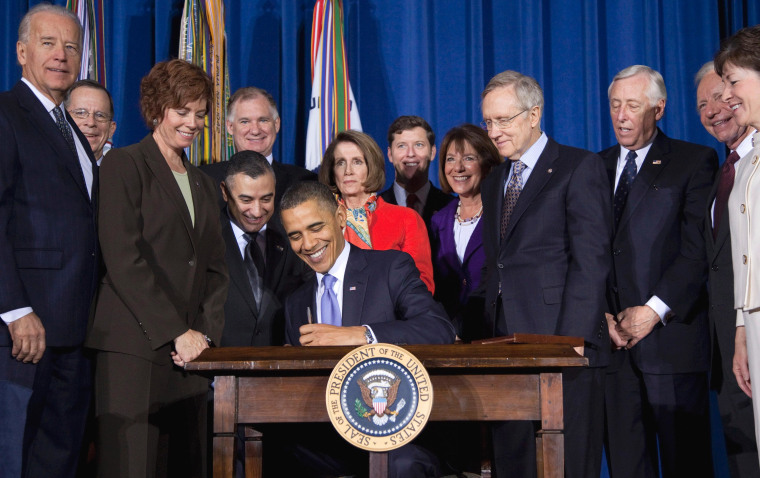It's been nearly one year since the Obama administration's repeal of "don't ask, don't tell," and a new study released today by the Palm Center shows that there has been no negative impact on the military or its readiness.
The Palm Center, a think tank that is part of the Williams Institute at the University of California Los Angeles School of Law, conducted interviews over the last six months with veterans, active-duty service members, and advocates who've both supported and opposed DADT and its repeal. The study, titled "One Year Out," found that the "repeal of DADT has had no overall negative impact on military readiness or its component dimensions, including cohesion, recruitment, retention, assaults, harassment or morale."
The study ultimately disproves many of the points argued by those who openly opposed the DADT repeal. Col. Dave Bedey, a retired senior member of the faculty at the United States Military Academy at West Point, told The Washington Post in 2010 that "the risk that open service by homosexuals poses to unit cohesion and, more importantly, to the stability of the larger military community that supports those units." Rep. Todd Akin, a Missouri Senate candidate now infamous for his comments on "legitimate rape," also argued in 2010 on the House floor that repealing DADT would affect recruitment, morale, and cohesion.
But the Palm Center's study revealed that military recruitment and retention was unaffected by the repeal of DADT, and that the repeal produced positive effects for gay service members who were able "to resolve disputes around harassment and bias in ways that were not possible prior to repeal." It is also noted that a sudden wave of violence, physical abuse, or assaults did not occur following the repeal.
In May, the U.S. Department of Defense released a report that showed the DADT repeal was a success, and Defense Secretary Leon Panetta noted that the repeal had no impact on morale, unit cohesion, or military readiness.
"Before the repeal of 'Don’t Ask, Don’t Tell,' you faithfully served your country with professionalism and courage. And just like your fellow service members, you put your country before yourself," Panetta said in a video message in June to LGBT service members. "And now, after repeal, you can be proud of serving your country, and be proud of who you are when in uniform."
In an interview today with POLITICO, Aaron Belkin, the lead author on the Palm Center's study, said that it was important to know if DADT was working or not because, during the Republican primaries earlier this year, none of the candidates expressed support for the repeal.
The Republican Party's platform also implies it would re-implement DADT through an "objective and open-minded review of the current Administration's management of military personnel policies" and "correct" those problems. However, a Romney campaign spokesperson told the Huffington Post that Mitt Romney stands by his previous statement about his position and that he has no plans on reversing the repeal "at this stage."
